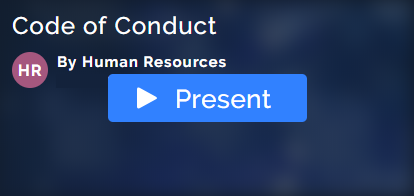Understanding the Code
The Conflicts of Interest Amendment Act (Bill 27) came into force in December of 2017. It imposes an obligation on public agencies, including the University of Alberta, to have codes of conduct governing their employees and boards of governors. The Code of Conduct: Employees' Obligations Respecting Conflicts of Interest (the "Code") was approved by General Faculties Council on February 25, 2019 and by the Board of Governors on March 15, 2019 and will come into effect on July 1, 2019.
New Requirements Within the Code
- Employees are reminded that they are to act and decide impartially in fulfilling their university duties. This means that employees must discharge their duties in a non-partisan and objective manner so as to ensure that the public's confidence and trust in the university is upheld. Impartiality is required by the Code but is not intended to limit the academic freedom of those entitled employees.
- Employees of the university are expected to adhere to the highest standards of ethical conduct and are prohibited from acting in self-interest or furthering their private interests, personal or financial, by virtue of their position or the execution of their duties.
- Directly or indirectly, employees must not accept any gift or invitation to an event connected with the performance of their university duties or by virtue of their position if the acceptance of the gift or event invitation would create an actual or perceived conflict.
- An employee engaged in a concurrent appointment, business, undertaking, employment, or self-employment (collectively " concurrent activity") in addition to their university appointment may be in a potential conflict.
Academic Staff Members (Faculty, FSO, Librarians, ATS, and TLAPS) who have the right to engage in Supplementary Professional Activities ( "SPA") under their collective agreements will continue to have their obligations with respect to concurrent activity defined wholly by their respective collective agreement.
How the Code Was Developed
The Code was created extensively from both existing policies and procedures and collective agreements. In large part, the requirements related to ethical conduct and conflict of interest and commitment are not new. A "copy and paste" approach was used to create the Code from the following:
- Ethical Conduct and Safe Disclosure Policy and Ethical Conduct and Safe Disclosure Procedure
- Conflict Policy and Conflict of Interest and Conflict of Commitment Reporting and Assessment Procedure
- Collective Agreements (Supplementary Professional Activities)
In order to meet the requirements of the legislation and the direction from the Office of the Ethics Commissioner, new sections were developed to address issues such as: impartiality in decision making and action; acceptance of gifts and event invitations; and concurrent employment and appointments. The annotated version of the Code outlines new versus current language.
As the Code is intended to operate alongside existing policies and procedures and collective agreements it does not purport to change any rights or obligations negotiated between the university and the associations representing Academic Staff, Support Staff, Postdoctoral Fellows, and Graduate Students. In the case of a discrepancy or inconsistency between the Code and a collective agreement, the terms of the collective agreement will govern.
Who the Code Applies To
The Code applies to the following categories:
- Academic Excluded Employees
- Academic Staff Members appointed under the AASUA Collective Agreement
- Graduate Students when appointed as Employees under the Graduate Student Assistantship Collective Agreement
- Graduate and Undergraduate Students when appointed as Employees under the AASUA or NASA Collective Agreements
- Management and Professional Staff (MAPS)
- Postdoctoral Fellows
- Support Staff Members
Role of a Reporting Officer
A Reporting Officer is the holder of the office to whom an employee reports or who has supervisory responsibility over the employee. Typically it will be the Dean of a Faculty or their delegate, Department Chairs or Employee Managers. A Reporting Officer will:
- Ensure the receipt of all Conflict of Interest and Conflict of Commitment Disclosure Reports and assess the information that has been provided to determine if an actual or perceived conflict exists;
- Where actual or perceived conflicts are identified, work with the employee to manage or eliminate the circumstances leading to the conflict in order to protect the interest, reputation and integrity of the university;
- Provide orientation to new employees related to the Code and associated policies at the beginning of employment as well as on a regular basis;
- Advise employees on Code of Conduct issues, including advice on resolving straightforward conflict issues;
- Seek out guidance and advice from the Vice-Provost & Associate Vice-President (HR) on conflict issues that are complex and/or cannot be easily resolved;
- Document any advice provided and/or decisions made; and
- Retain Disclosure Reports for a period of three years.
